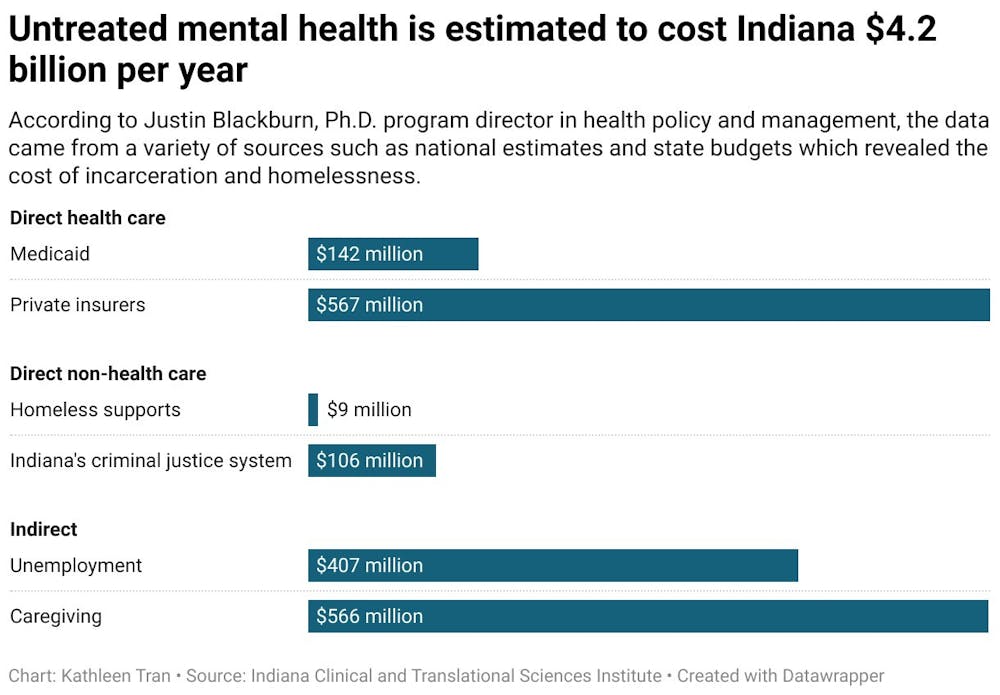An analysis published by the Indiana Behavioral Health Commission shows untreated mental health conditions cost Indiana nearly $4.2 billion per year.
“Without understanding the full economic impact of untreated mental illness and where societal costs accrue, it is difficult for policy leaders and decision-makers to know where best to target interventions and allocate limited resources and funding,” Heather Taylor, health services researcher from the Richard M. Fairbanks School of Public Health, said.
The Indiana Behavioral Health Commission was developed in 2020 by the Indiana General Assembly. One of its goals was to determine the cost of untreated mental health issues in the state, so a research team was created. This included Taylor, Justin Blackburn, Ph.D. program director in health policy and management, and other experts from the Paul H. O’Neill School of Public and Environmental Affairs, Irsay Institute and WISE Indiana.
“This research was important because untreated mental illness is a major public health challenge and more attention is needed to understand barriers to access and the consequences of inadequate treatment,” Blackburn said. “We wanted to better understand the economic consequences, which is something no one has ever done before.”
Related: [World Mental Health Day promotes resources and awareness for those facing mental health issues]
The report showed productivity losses were estimated to cost $885 million each year. Direct health care such as Medicaid and private insurers costs nearly $708 million, direct non-health care which includes Indiana’s criminal justice system and homeless supports costs around $115 million, and indirect costs like caregiving and unemployment for those unable to work costs approximately $973 million.
“I knew things like the incarceration system and stuff like that were flawed, but I didn’t realize how much money we were losing because of the lack of recognizing or lack of awareness of mental health issues,” Lauren Baumgardner, an IU O’Neill School freshman, said.
In the full report from the Indiana Behavioral Health Commission, many recommendations are provided, one of them being an implementation of a three-part model for those experiencing a mental health crisis. The model includes having someone to contact, someone to respond and a safe place for the person to seek help.
“IU students and all Hoosiers should be aware of the new 988 Suicide and Crisis Lifeline,” Blackburn said. “This is an alternative to 911, which may be stigmatizing for people since it could involve law enforcement.”
Related: [Student Health Center to offer events, clinics and testing appointments this November]
Other resources that can be utilized are available in the Counseling and Psychological Services. It is located on the fourth floor of the Student Health Center and is open from Monday through Friday 8 a.m. to 4:30 p.m. IU students who paid the student health fee receive two free CAPS sessions along with first-time clients receiving an additional free, 30-minute assessment. They also offer online workshops that teach students strategies to navigate stress, depression and anxiety.
“We hope this work brings attention to the cost of inaction relative to the investments in improving mental health access to treatment,” Blackburn said.






